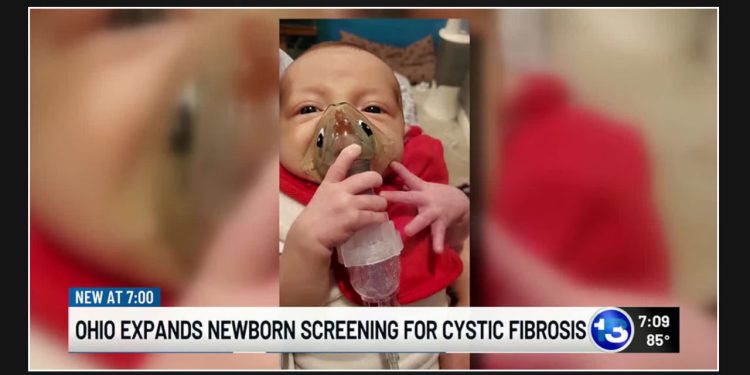Ohio to expand newborn screenings for cystic fibrosis
In a bid to improve the health outcomes of newborns, the state of Ohio has announced its decision to expand newborn screenings for cystic fibrosis. Soon, the state will be testing for the maximum number of mutations possible by laboratory testing, ensuring that newborns with cystic fibrosis are identified and treated as early as possible.
Cystic Fibrosis is a genetic disease that gradually worsens over time. It creates excessive amounts of thick, sticky mucus that can obstruct and harm the lungs and digestive system.
According to Dr. Meghan Keaton, a Pediatric Pulmonologist at ProMedica, newborns receive a blood test at birth to measure the levels of a chemical known as immunoreactive trypsinogen, or IRT. Elevated levels of IRT are often found in infants with CF, which signals the need for further genetic testing.
Dr. Keaton pointed out that while the current testing for cystic fibrosis focuses on 40 mutations, there are actually over 1700 mutations that have been identified as potential causes of the condition.
Dr. Keaton explains that although this increase in testing cannot detect all mutations, it will broaden the scope of genes being tested from the outset. This will aid in the early identification of more cases, ultimately allowing for earlier treatment to begin.
Dr. Keaton emphasized the importance of prevention, early detection, and staying ahead of the disease when it comes to CF.
A mother from the local community shared with 13 Action News that her 4-year-old son has CF and has to undergo breathing treatments twice daily when he’s not unwell. However, when he’s sick, the frequency of his treatments increases to every 4 hours.
Levi Brunt was diagnosed with cystic fibrosis just a few days after he was born, as shared by his mother, Jordan Brunt. The diagnosis was overwhelming for the family, and Levi faced several complications in his first year, including bowel obstructions and surgeries. However, thanks to the medications he’s taking, such as pancreatic enzymes and TRIKAFTA, Levi’s health has significantly improved.
According to Dr. Keaton, 15 years ago, life expectancy for CF patients was only in the early 30s. However, thanks to advancements in medication and preventative care, the median life expectancy has now increased to 61 years old.
Dr. Keaton mentioned that over half of their patients have a life expectancy beyond 61 years.
Levi Brunt’s family is overjoyed with recent advancements in CF medicine. According to Jordan Brunt, Levi’s mother, when she and her husband learned of Levi’s CF diagnosis, they never thought they would have another child. However, with a baby girl on the way, they were willing to take the risk thanks to the progress made in CF treatments.

